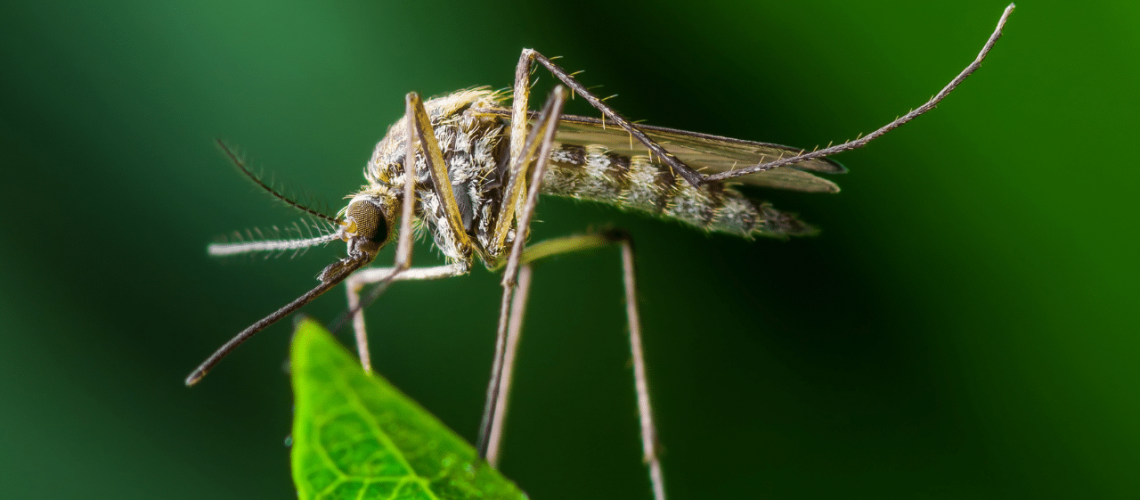By: Allison Bell, Fikes
With the Pacific Northwest heading toward the summer months, the warm-weather pests are here – And they’re thriving!
No one wants to see their pool parties, barbecues or other outdoor hangouts ruined by pests. That’s why we’ve rounded up the top five pests to have on your radar this summer, along with some tips for keeping them at bay. While the warmer months are the time for nearly all pests to be at their peak, these are the ones you’re most likely to be dealing with during your summer adventures.
1. Mosquitoes
Many of us think of mosquitoes as one of the most annoying pests during summer time of year. Whether you’re sitting around a fire in your backyard on a humid night or out on the lake with friends during midday, they seem to be inescapable. In addition to being an unwelcome nuisance, they can also carry a multitude of diseases, such as malaria, Zika virus, West Nile virus, dengue and Chikungunya virus.
The most obvious method for keeping mosquitoes away is wearing insect repellent while outside, something you can find in nearly any grocery or drug store these days. Another popular (and more natural) method involves lighting candles infused with essential oils that are known to keep mosquitoes away, such as citronella, lavender, cinnamon and tea tree. Long-term solutions include reducing the amount of stagnant water in areas you want to reduce activity and keeping plants around that mosquitoes avoid, such as rosemary, catnip, marigold, sage and mint.
2. Ants
Seeing even one ant in or around your home can be cause for concern, because that most likely means there are hundreds more of them nearby. The summer months are prime time for ants to stray away from their colonies in search of food and water, so the best method for keeping ants from coming your way is simple – Make sure they can’t get what they’re looking for from you by keeping your home as clean as possible.
Regularly wipe down your countertops and other surfaces with soap and warm water, don’t allow sugary and greasy spills to sit for too long and clean up food crumbs that find their way into cracks and crevices. Like mosquitoes, ants also seek out water sources, so try to keep standing water out of your home, especially in your kitchen and bathrooms.
3. House Flies
Perhaps the only pests that are more annoying than mosquitoes are house flies – Especially because they reside in your home. Luckily, many of the methods for keeping them out overlap with those for warding off mosquitoes and ants.
Like the two pests mentioned above, house flies are attracted to certain things. Specifically, they’re attracted to waste that they can lay their eggs in, like food waste, rotting materials, manure and animal feces. They can also be attracted to bright lights at night.
Because of the nature of their diet, house flies can also carry diseases, such as dysentery, which are spread through their bite like mosquitoes.
There are a number of different at-home methods you can try that can be effective in keeping house flies out of your home, such as planting herbs and flowers that are known for repelling them. Plants that can repel flies include lavender, catnip, bay leaves, marigold and basil. It’s also possible to make DIY fly traps by using mixtures of vinegar and dish soap or cayenne pepper and water.
4. Ticks
If you’re someone who likes to spend time outdoors during the summer, you’ve probably dealt with a tick bite or two before, and you probably know how sneaky they can be in attaching themselves to you while you’re making the most of the warm weather.
The main way you can prevent tick bites in the summer is through avoidance. Before venturing outdoors, familiarize yourself with where ticks tend to reside, such as grassy or wooded areas. If you’re walking in areas like these, walk on designated trails and try to walk in the center so as not to brush up against any foliage.
After coming back inside, check your clothing for ticks and remove any you find, and then do a full-body check using a mirror to see all parts of your body. Taking a shower shortly after spending time outdoors can also help to wash away any unattached ticks.
If you find a tick that has attached itself to you, remove it as soon as possible to reduce the risk of contracting Lyme disease, the main disease ticks carry. The most tried-and-true method for removing an attached tick is by using fine-tipped tweezers to grasp the tick as close to the skin as possible and then pulling it up and out. Try to refrain from twisting the tick around during removal as this can cause the parts of their mouth to break off and stay in the skin.
5. Wasps
Wasps can be a little more intimidating to deal with than the other pests included on this list due to their painful stings and potential to cause allergic reactions, but there are some preventative measures you can take to keep your home from becoming prime real estate for wasp colonies.
Like ants and house flies, wasps are attracted to food – Primarily, they go for foods high in protein, such as meat, and drinks that are sugary and sweet, such as sodas and juices. Keeping your outdoor areas free of food and drink items and cleaning up after eating outdoors can be effective in keeping wasps away from your home. If you have outdoor trash cans with food waste in them, ensure they have lids that are kept tightly sealed.
Some wasps can burrow into your home if you have any gaps that provide entry to hollow spaces, such as walls or floors, roof spaces and chimneys. Seal any cracks and crevices wasps could use for nesting.
Similar to mosquitoes and house flies, wasps are repelled by certain herbs and essential oils; scents such as lemongrass, clove, peppermint and eucalyptus can help keep wasps out of your yard and home by being applied to exterior walls and crevices. You can also plant certain herbs, such as spearmint, thyme and citronella, to discourage wasps from coming into your yard.
Even after taking all possible preventative measures, a wasp infestation can still happen. If you find a nest in your yard or home, the best course of action is to call pest control professionals to take care of it for you. While it’s possible to handle a small nest on your own using store-bought traps and decoys, wasps can be hostile if threatened or disturbed. Pest control experts have the tools and expertise required to get the job done in the most effective way.
Keep Your Home and Yard Free from Summertime Pests

If all preventative measures fail and your pest problem persists, get rid of it at the source by calling Fikes Pest Control. Our pest control technicians have the knowledge and equipment to properly treat your infestation and reduce the chances of the population rebounding, so you can get back to enjoying the summer without skipping a beat.
Contact Fikes Pest Control today to learn more about our treatments and receive a custom quote for solving your pest issue before it becomes an infestation!




